CIA Sponsored Terror, Civil Liberties, Human Rights, Truth to Power, War Resister
Podcast: Play in new window | Download
Law and Disorder Editorials:
—-
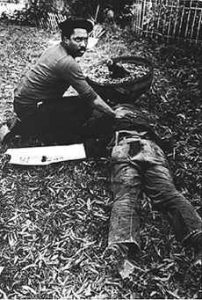
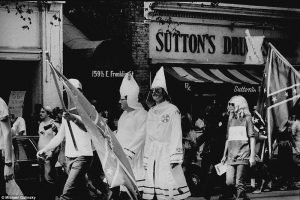
Lessons From The Greensboro Massacre
Thirty eight years ago, on November 3, 1979, 35 heavily armed members of the Ku Klux Klan and the American Nazi party drove nine vehicles through the city of Greensboro, North Carolina, and opened fire on a multi-racial group of demonstrators who were gathering at a black housing project in preparation for an anti-Klan march.
Using semi automatic rifles, shotguns and pistols the Nazis and Kukluxers fired 1000 projectiles in 88 seconds killing five march leaders and wounding seven other demonstrators.
Most of the victims were associated with the Communist Workers Party, a multi racial group which had been organizing in the south for workers rights in the cotton mills and against the Ku Klux Klan.
The Greensboro police, the Bureau of Alcohol, Tobacco, and Firearms, and the Federal Bureau of Investigation were all aware of the planned attack. Four TV stations captured the massacre on video. A reluctant local district Attorney obtained six indictments under pressure from the Greensboro Justice Fund which had been organized by the windows of the victims, and the public outcry. A six-month trial resulted in the acquittal of all six defendants.
Then a reluctant Reagan administration Department of Justice tried nine of the Klansmen and Nazis on civil rights conspiracy charges. After a three-month trial all nine were acquitted.
A year after the massacre a civil rights suit was brought on behalf of the 16 victims. It expose d the depth and contours of official involvement.
After an extraordinary dramatic 10 weeks civil trial a southern jury finally convicted a good number of the actors in the massacre. The verdict was national news.
Guest – Attorney G.Flint Taylor, a graduate of Brown University and Northwestern Law School, is a founding partner of the People’s Law Office in Chicago, an office which has been dedicated to litigating civil rights, police violence, government misconduct, and death penalty cases for more than 40 years.
—————
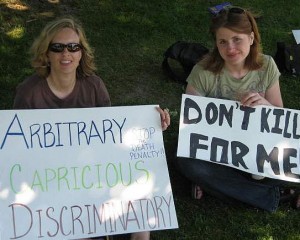
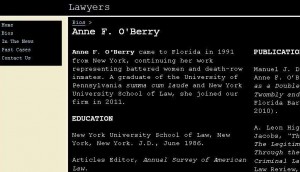
Lawyers You’ll Like: Anne O’Berry
As part of our Lawyers You’ll Like series we’re joined by attorney Anne O’Berry, she’s the Vice President of the Southern Region of the National Lawyers Guild and the author of The Law Only As An Enemy: The Legitimization of Racial Powerlessness Through the Colonial and Antebellum Criminal Laws of Virginia. While in law school, she served as Director of the Women in Prison Project at Rikers Island, where she taught incarcerated women how to prevent termination of their parental rights.
Anne clerked for federal judges in New York, New Jersey and Pennsylvania, including Judge A. Leon Higginbotham, Jr. of the U.S. Court of Appeals in Philadelphia, with whom she co-authored an article on the law as a tool of oppression against slaves and free blacks in pre-Civil War Virginia and taught civil rights and South African apartheid law at the University of Pennsylvania. She later taught Race and the Law at St. Thomas University Law School in Miami, Florida.
In the last 12 years, Anne has served as counsel at a Florida law firm that specializes in class action litigation, particularly in the areas of securities, consumer and economic fraud, as well as some environmental and privacy rights litigation.
Attorney Anne O’Berry:
- We did a lot of historical research in terms of racism and the law back in pre-civil war Virginia.
- We focused on Virginia because it was a paradigm for slavery basically in the slave laws that were in place.
- We wrote an article for publication, it was published in the University of North Carolina law review. The Law Only As An Enemy:’ The Legitimization of Racial Powerlessness Through the Colonial and Antebellum Criminal Laws of Virginia.
- Depending on your status, if you were a free white person or a slave, you were treated differently by the law.
- As an overall theme, depending on the race of the victim was that would effect what your sentence would be.
- For example, if a black woman was raped, that was not considered a crime. If you were a black person and you stole something, you would be put to death.
- It was ironic for the slave owner because if their slave was put to death, they would have to be compensated by the state.
- If the victim was black, the crime was treated less seriously than if the victim was white.
- I started out working at a firm in New York, a large prominent, Wall Street type.
- Among some people I was known as the pro-bono queen.
- I was there for 2 and a half years and the first pro-bono case was a death penalty case.
- The court ruled back then (1990s) that it was ok to execute the mentally retarded.
- I was so moved by that experience that I gave up my cushy job in New York and go do death penalty work full time.
- I ended up at the Federal Resource Center doing death penalty work in Tallahassee Florida.
- I worked for the Battered Women’s Clemency Project in Florida.
- More recently the Supreme Court did rule that it is unconstitutional to execute people who were juveniles at the time of the offense and unconstitutional to execute people who are mentally retarded.
- I believe in my lifetime we will see the end of the death penalty in this country.
- It’s just an amazing system that we have where the courts will say – yes you’ve got compelling evidence of innocence but we’re not going to hear your case.
- I would say what got me through was the victories.
- Presently, I’m working with an attorney Jim Green, who’s a prominent civil rights attorney in West Palm Beach, kind of a legend down here.
- I also some volunteer work with El Sol. It’s a day laborer center in Jupiter, Florida.
Guest – Anne O’Berry, National Lawyers Guild’s Regional Vice President for the Southern Region and a member of the Guild’s South Florida chapter. She obtained her undergraduate degree from the University of Pennsylvania in 1983 and her law degree from New York University Law School in 1986. While in law school, she served as Director of the Women in Prison Project at Rikers Island, where she taught incarcerated women how to prevent termination of their parental rights. She was a member of the law school’s civil rights clinic and an editor on one of the law school’s journals, and authored a law review article on prisoners’ rights. During and after law school, she clerked for federal judges in New York, New Jersey and Pennsylvania, including Judge A. Leon Higginbotham, Jr. of the U.S. Court of Appeals in Philadelphia, with whom she co-authored an article on the law as a tool of oppression against slaves and free blacks in pre-Civil War Virginia and taught civil rights and South African apartheid law at the University of Pennsylvania. She later taught Race and the Law at St. Thomas University Law School in Miami, Florida.
Academic Freedom, CIA Sponsored Terror, Civil Liberties, Criminalizing Dissent, Human Rights, NSA Spying, Supreme Court, Surveillance, Truth to Power
Podcast: Play in new window | Download
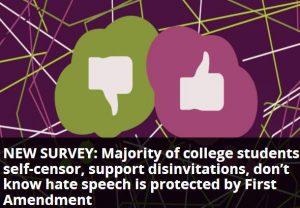
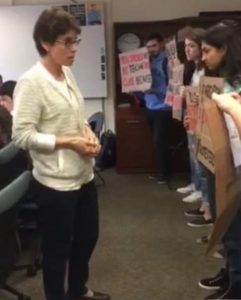
Free Speech on College Campuses
Last week an invited lawmaker was shut down form addressing Texas Southern University after protesters stormed the room calling him a racist. House Representative Briscoe Cain was asked to speak to the Thurgood Marshall School of Law by the Federalist Society about the recent legislative special session. But as he uttered a few words, he was shut down by students and then the University’s President claimed it was an unapproved event. It’s ironic that the school is named for the Supreme Court justice known for his exemplary record of protecting First Amendment rights.
Attorney General Jeff Sessions also recently spoke–uninterrupted–at Georgetown University about free speech on American college campuses. He said, “The right of free speech does not exist only to protect the ideas upon which most of us agree at a given moment in time,” and encouraged students to: “make your voices heard, [and] to defend the rights of others to do the same.” Sessions joins a bipartisan chorus of public officials expressing support for free speech in academic institutions.
This summer, Senators Bernie Sanders and Mitch McConnell condemned efforts to shut down different viewpoints at schools. And in 2015, Barack Obama more than once defended the importance of free speech on campus. “I don’t agree that you, when you become students at colleges, have to be coddled and protected from different points of view,” he said at a September 2015 town hall.
The recent Sessions talk comes amid an uptick (1) in efforts to dis-invite controversial speakers of all ideological persuasions, (2) use of bias response teams to monitor unpopular speech, and (3) in unprecedented violence aimed at silencing off-campus speakers.
These are some of the findings from a recent study produced by The Foundation for Individual Rights in Education. The comprehensive survey on students’ attitudes about free speech measured responses to questions about hate speech, guest speakers on campus, self-expression and reactions to expression of other students.
Guest –Will Creeley, Senior Vice President of Legal and Public Advocacy at the Foundation for Individual Rights in Education. FIRE is a nonpartisan, nonprofit organization dedicated to defending liberty, freedom of speech, due process, academic freedom, legal equality, and freedom of conscience on America’s college campuses.
—-
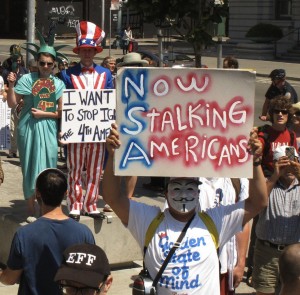

Tech Freedom on USA Liberty Act of 2017
Americans whose data is inadvertently swept up while the government monitors foreign intelligence, risk having their information used for non-national-security related purposes.
Two weeks ago draft legislation was introduced to address this, but a broad coalition of civil liberties organizations say it doesn’t go far enough. They are calling on the House to close the so-called “back-door search” loophole by requiring a warrant based on probable cause for any search of information about U.S. citizens and residents.
Similar to the USA Freedom Act of 2015, which ended the practice of bulk surveillance of American citizens under Section 215 of the 2001 PATRIOT Act, the current USA Liberty Act of 2017 would overhaul surveillance that is supposed to be limited to targets outside the U.S. but actually affects Americans. Section 702 expires at the end of December, which is why Congress is reassessing the program.
Currently, FISA surveillance is conducted under a warrant issued annually by the FISA court for a list of foreign intelligence targets. But law enforcement can access, and can use, Americans’ communications swept up in FISA surveillance with no warrant at all. This is even though U.S. persons’ communications require constitutional protections not afforded to foreigners.
The USA Liberty Act adds a warrant-like ‘probable cause’ requirement before law enforcement can search the database, but also includes a sweeping, vague exception for “foreign intelligence information” and does not stop law enforcement from using that information for criminal prosecutions. This is a glaring violation of the Fourth Amendment.
Guest – Austin Carson, Executive Director of TechFreedom joins us to talk about this legislation, and the state of surveillance generally. Tech Freedom is a non-profit, non-partisan technology think tank launched in 2011 that focuses on issues of Internet freedom and technological progress.
————————————————–
CIA Sponsored Terror, Civil Liberties, Climate Change, Human Rights, Political Prisoner, Truth to Power, War Resister
Podcast: Play in new window | Download
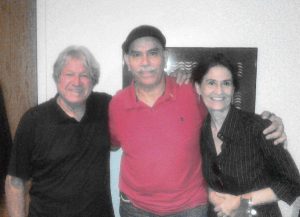
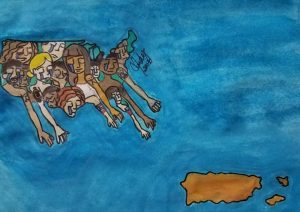
Puerto Rico Disaster Recovery, The Jones Act And Federal Aid
The devastation to Puerto Rico from Hurricane Maria has been likened to the impact of an atomic bomb, destroying the U.S. territory, and leaving nearly 3.5 million U.S citizens without power, limited access to food and water, and a collapsed infrastructure. Donald Trump was quick to blame the island nation for its problems, even highlighting its financial debt to Wall Street.
Puerto Rico has a history of struggling for federal aid for natural disasters contrasted with those on the mainland. The White House response to much-needed funding post-Maria is to wait for a “full assessment” and “fact-finding” process. Early reinforcements from the Federal Emergency Management Agency (FEMA) are appalling, if nonexistent: Diesel fuel for generators is scarce. Towns outside metro areas are unreachable. Hospitals can’t treat patients. Streets are flooded, looting is rampant, highways destroyed. The National Guard, FEMA, Red Cross or federal vehicle have yet to be spotted on the island. None of this is new.
In 1989, when Hurricane Hugo hit South Carolina, Puerto Rico and the USVI, the elder President Bush was criticized for not responding quickly enough. More relief for the Caribbean was added to a bill initially designed to address earthquake damage in California. And when Hurricane Georges pounded Puerto Rico in 1998, it took half a year for the federal government to act on a long-term plan for the island.
A central reason for this is the Jones Act, a century-old shipping law often accused of stifling the Puerto Rican economy. Among other things, the Act requires that domestic shipping be conducted by U.S.-owned, U.S.-made ships staffed by American crews. That means, for example, that all food from the mainland—and Puerto Rico imports 85 percent of what it consumes—must be brought in U.S. ships.
Nydia Velázquez, the Puerto Rico–born congresswoman who represents parts of New York City, says she will ask Congress for a one-year waiver to Jones Act requirements for the territory. That might test Washington’s willingness to change its approach to Puerto Rico and to see if Puerto Ricans’ status as citizens without full rights is really working.
Guest – Carlito Rivera, co-editor of the Old and New website, active with the Campaign to Bring Mumia Home, and a Former member of the Young Lords. CONTACT: El Maestro – Community Center and Boxing Gym in the Bronx, Puerto Rican Nationalist Party Headquarters 646-299-6507.
Since the recording of this interview, President Trump agreed to waive the Jones Act, which will temporarily lift shipping restrictions and allow the people of Puerto Rico to receive necessary aid.
—-
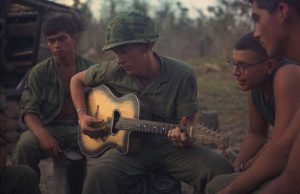
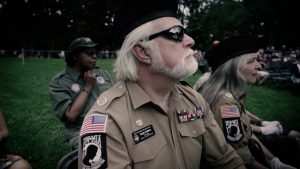
Burns and Novick: Masters of False Balancing
Ken Burns and Lisa Novick have made an influential documentary called “The Vietnam War” whose 10 episodes have been running on PBS. Burns said that his film “will inspire our country to begin to talk and think about the Vietnam war in an entirely different way.” Novak said that “we are all searching for some meaning in this terrible tragedy.”
The United States took over the war in 1954 from the defeated French who failed despite massive American support to recolonize Vietnam after World War II. The United States left Vietnam 1975 when they were forced to withdraw troops in the teeth of massive Vietnamese resistance, a huge antiwar movement at home, and the refusal of GIs in Vietnam to continue to fight.
At least 3 million Vietnamese were murdered. 58,200 American soldiers were killed. 19 million gallons of toxic defoliants, 7.5 million tons of bombs, including 400,000 tons of napalm were dropped on the Vietnamese. Without a Navy or Air Force, the Vietnamese resistance lived in tunnels or hid in the jungle.
The CIA’s infamous operative in Vietnam, Colonel Edward Lansdale, who helped install the US supported dictator Diem, quoted Robert Tabors The War of the Flea saying “there is only one means of defeating an insurgent people who will not surrender, and that is extermination. There is only one way to control a territory that harbors resistance, and that is to turn it into a desert.”
The Burns-Novik film’s opening sentence says that the war was started “in good faith by decent people out of fateful misunderstandings, American overconfidence and cold war misunderstandings.” Noam Chomsky, who came to prominence in 1967 as a critic of the war, and who was not interviewed in the film, wrote that the US “went to war in Vietnam for a very good reason. They were afraid Vietnam would be a successful model of independent development and that it would have a virus effect – if that others who may try to follow the same course.”
Guest – Jerry Lembcke, Professor Emeritus of Sociology at Holy Cross College.
Professor Lempke is recognized for work on post-Vietnam War American culture, studies of how we continue to process the war through film, literature, folklore, and of course television documentaries. He is the author and editor of many books, most notably his 1998 book “The Spitting Image: Myth, Memory and the Legacy of Vietnam”. He served as a chaplain’s assistant in Vietnam and is a member of Vietnam Veterans Against the War.
—————————————————
CIA Sponsored Terror, Civil Liberties, Habeas Corpus, Human Rights, Iran, Iraq War, Prison Industry, Surveillance, Targeting Muslims, Torture, War Resister
Podcast: Play in new window | Download
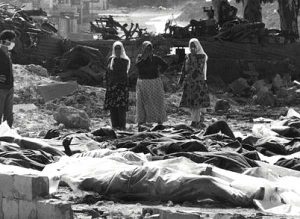
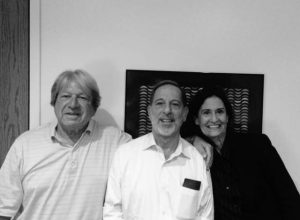
35th Anniversary of Palestinian Mass Slaughter in Lebanon Refugee Camps
This month marks the 35th anniversary of the mass slaughter of civilian Palestinians by Lebanese fascists in their Lebanon refugee camps of Sabra and Shatila. The Palestinians who lived in the camps had been driven out of their villages in the Galilee by Israel. They had lived there for hundreds of years until the Zionist colonialists expelled them in 1948. The Israeli Army aided in the 1982 slaughter. The 1982 Israeli invasion of Lebanon, which preceded the massacre, was given the greenlight by the United States. Up to 1982, the Palestine Liberation Organization, known as the PLO, had its headquarters in Beruit, Lebanon. This Israeli Army invaded Lebanon and succeeded in driving the PLO out. The United States gave written commitments to the PLO about protecting the civilian population in order to secure the PLO’s evacuation from Beruit the month before the slaughter at Sabra and Shatila camps.
Israeli Defense Minister Ariel Sharon falsely asserted that there were 2000 terrorists in the camps. US Envoy to Lebanon Morris Draper did not dispute this falsehood. Sharon told Draper that ” We will kill them. They will not be left there. You are not going to save them.” Sharon sent Lebonese fascists into the refugee camps. They silently killed hundreds of Palestinians and Lebanese, mostly women and children and old men, using knives and bayonets. The Israeli Army lit up the killing fields with flares. There was such a worldwide outcry that Israel was forced to set up a commission of inquiry. That commission found that Sharon bore “personal responsibility” for the massacre and recommended that he be dismissed from his post as Defense Minister.
The blowback from these events in Lebanon 35 years ago still echo today in the wars America is conducting in Syria and Iraq.
Guest – Rashid Khalidi, Edward Said Professor of Arab Studies at Columbia University. He is the author of “Under Siege: PLO Decision Making During the 1982 War”. and most recently “Brokers of Deceit: How the US Has Undermined Peace in the Middle East.” Professor Khalidi recently had an article on the Sabra and Shatila massacre in The Nation magazine.
—-
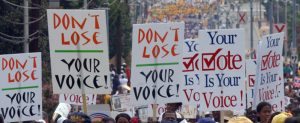
Community Votes
The Queensbridge House public housing project in Long Island City Queens is the largest such complex in the country. With more than 7,000 residents, it’s a community with little faith in civic engagement. Like other public housing communities, and low-income neighborhoods in general, poor people vote at considerably lower rates than wealthier ones. Many feel apathetic, that the system is rigged, and that their votes don’t matter.
One nonprofit in NYC is using innovative partnerships with community-based social service organizations to conduct nonpartisan voter mobilization so more underrepresented citizens participate in our democracy.
Community Votes is trying to change the culture and mindset of large nonprofit social service agencies so they integrate into their day-to-day operations civic engagement activities. These activities include promoting awareness of elections and issues and encouraging voting and other participation in federal, state, and city policy making. A few years ago Community Votes partnered with the Jacob Riis Neighborhood Settlement, a longtime provider of social services in the Queensbridge Houses, to engage in personalized messaging to mobilize voters. The results were a considerably higher rate of voter turnout in the 2014 midterm elections.
Guest – Louisa Hackett is the director of Community Votes. Louisa founded Community Votes in 2013. Through her work at Community Resource Exchange providing consulting services to New York City nonprofit organizations, she recognized the assets direct service organizations have to turn more citizens into voters.
—————————————————–
CIA Sponsored Terror, Civil Liberties, Human Rights, Iraq War, Military Tribunal, NSA Spying, Political Prisoner, Surveillance, Targeting Muslims, Torture, War Resister
Podcast: Play in new window | Download
—-
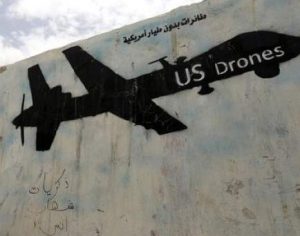
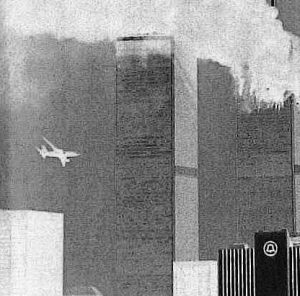
Illegal Preventive War
Sixteen years ago today two hijacked planes flew into the twin towers and another one into the Pentagon. Fifteen of the 19 attackers were Saudi Arabians. They were funded by elements of the Saudi Arabian government. Osama bin Laden, a Saudi Arabian fundamentalist from a wealthy Saudi family took responsibility for the attack. He said he did it for three reasons: The American support of Israel against the Palestinians; the presence of US bases near the Saudi Arabian holy cities of Mecca and Medina; and the US economic and trade sanctions against Iraq which killed 600,000 children.
When the attack occurred, the feckless and unpopular George W. Bush had been in office less than a year. He told his national security advisor to figure out a way to blame the attacks on Iraqi dictator Saddam Hussein. A lie was propounded by Bush , his vice president Dick Cheney, and his secretary of defense Donald Rumsfeld that Iraq had contact with Osama bin Laden and that Iraq was developing nuclear weapons, weapons of mass destruction. First, Afghanistan was bombed, even though it’s leaders offered to turn over Osama bin Laden. Then an illegal war was launched against Iraq initiated with horrific bombings called “shock and awe.” In the following years 1 million people were killed in that country. Half of the population are refugees or internally displaced.
In the wake of the 911 attacks, the Patriot Act was hastily pushed through Congress bringing an American police state closer into being. The war on terror was declared even though terror is a tactic and war is traditionally had been fought against other countries. This has given it a permanent character. A campaign of fear was whipped up. Torture and kidnapping by the CIA was instituted. Eventually the United States under President Obama was fighting six were simultaneously in Iraq, Afghanistan, Syria, Yemen, Libya, and Somalia. Trump continues this aggression.
Guest – Ajamu Baraka, a member of board of directors of Cooperation Jackson, in Jackson Mississippi, editor and contributing columnist for Black Agenda Report, and National Organizer for the Black Alliance for Peace. He recently ran for vice president on the Green party ticket. He is a former board member at the Center for Constitutional Rights and a leader of the United National Anti-war Coalition.
U.S. Antiwar Leaders Call for Actions to Oppose the Escalation of the Afghanistan War During the Week of the 16th Anniversary of the Invasion, October 2 – 8.
—-
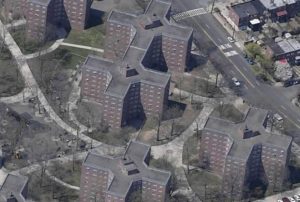
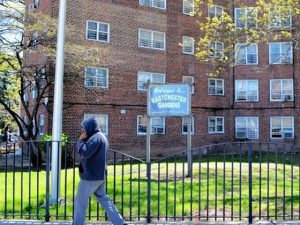
The Bronx 120 and Secor 19
A year ago we reported on the largest gang raid in NY history. It took place, pre-dawn, in the Williamsbridge section of the North Bronx, with 700 law enforcement officers arresting 120 young men indicted on conspiracy charges using the 1970 RICO Act. In one apartment, more than a dozen police threw flash-bang grenades and broke down the front door with assault weapons aimed at a mother and her two daughters, then forced them to crawl down their hall on all fours toward the officers.
At that time, police held a press conference and characterized the young men as “the epitome of organized crime today.” Cooperating federal agencies included the DEA, the ATF, the US attorney general, and ICE’s Homeland Security Investigations. Community members question this portrayal, saying the young men were not highly organized gangsters terrorizing a community; they lacked money and weapons and were living at home with their parents.
Critics claim that applying RICO to street gangs has racist implications. Under RICO, individuals can be found guilty by association. Despite gang-related crime accounting for less than 2 percent of city crime, two weeks after the raid, James O’Neill, now NYPD Commissioner, promised more raids.
He came through with that promise this past April. Multiple arrests were made at the Boston Secor Houses in the Bronx, and federal charges were brought against 19 young persons. They have been charged with racketeering conspiracy, narcotics conspiracy, robbery conspiracy, extortion, and firearms offenses. We’re joined today by a FAMILY MEMBER of one of the young men arrested.
———————————————–


















